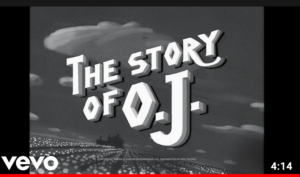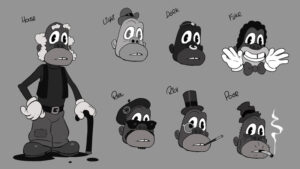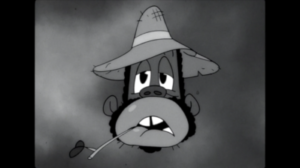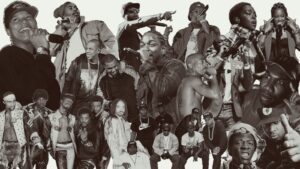The purpose of my project was to depict what Hip-Hop has done for equality in black communities and how it continues to carve a bright future for society.
Blog Post: Fighting Oppression with Music
By: Matthew Davis
Throughout history, people of color have been persecuted because they were different. They were seen as inferior because of their skin color. This has affected African Americans, as well as Africans in general because they get treated differently, from the jobs they can obtain, to their salaries being much lower than the average white man, and even where they’re able to sit on a bus. However, when there’s oppression there will always be someone trying to create equality for all. Even artists tries to overcome oppression and racism through their style of art.
The Story of O.J. by Jay-Z is a song about the racial stereotypes that people of color experienced. This can be seen throughout the music video, as well as heard in the lyrics. The Billboards state, “However, the overarching theme of the song details how one’s skin color shapes how they are viewed in society, regardless of their financial class or levels of fame attained.” This is true to a certain extent. Although colored people come in all shapes, shades, and sizes, they’re all discriminated against the same way. You could be the richest person in the world, but if you’re colored then you’ll still be discriminated against. Jay-Z says, “O.J. like, I’m not black, I’m O.J.” In the music video, Jay-Z uses O.J Simpson as someone that tried to say he wasn’t black because of his wealth and achievements as a football player. Blackness isn’t based on finance or wealth; it’s genetic. The images below present us with the eight types of colored people that are shown in the music video, as well as seen throughout history.


The lyrics that connect to these images are, “Light nigga, dark nigga, faux nigga, real nigga. Rich nigga, poor nigga, house nigga, field nigga. Still nigga, still nigga.” Jay-Z is saying you can be any shade but you’re still a colored person in the eyes of society.
Sonia Delgado-Tall’s, “The New Negro Movement and the African Heritage in a Pan-Africanist Perspective” says, “As for Africa, it still was “the dark continent” in European colonial literature and, consequently, in the White American culture of the 1920s. There was a direct correlation between the inferior status of Blacks in America and that of colonized Africans.” Delgado is expressing that the African Americans were able to express their talents, while the colonized Africans were still considered as inferior.
The textbook, “Let Nobody Turn Us Around” touches on the topic of Hip-Hop activism. Hip-Hop Activism was a way people of color would express what they wanted starting in the mid-1970s. Since then, the usage of music has been a major game-changer for people of color. In the textbook, it says, “1. We want freedom and the social, political and economic development and empowerment of our families and communities; and for all women, men and children throughout the world.” This was the major topic that was discussed within the music that Hip-Hop artists created. The image below shows a few of the iconic artists that performed for the greater good of Africans and African Americans such as Queen Latifah, Tupac, Kanye West, Jay-Z, and many more.

The textbook, “Let Nobody Turn Us Around”, Sonia Delgado-Tall’s “The New Negro Movement and the African Heritage in a Pan-Africanist Perspective” and Jay-Z’s song, “The Story of O.J.” have a major connection to each other. Aside from discussing the need of equality in society, they also discuss the issues people of color endure such as racial profiling and violence. In the textbook, it says, “5. We want the total elimination of racism and racial profiling, violence, hatred, and bigotry.” Jay-Z uses his chorus, “Light nigga, dark nigga, faux nigga, real nigga. Rich nigga, poor nigga, house nigga, field nigga. Still nigga, still nigga.” to express that people of color are profiled because of their history. What these two sources are saying is there’s no need for profiling or another label. That’s what the word nigger or nigga is; it’s a discriminative
Work Cited
JAY-Z – The Story of O.J. (2017, June 30). Retrieved December 16, 2020, from https://genius.com/Jay-z-the-story-of-oj-lyrics
Jefferson, J. (2019, November 24). Songs That Defined the Decade: Jay-Z’s ‘The Story of O.J.’ Retrieved December 16, 2020, from https://www.billboard.com/articles/columns/hip-hop/8543924/jay-z-story-of-oj-songs-that-defined-the-decade
Marable, Manning. Let Nobody Turn Us Around (p. 939). Rowman & Littlefield Publishers. Kindle Edition.
Sonia Delgado-Tall, “The New Negro Movement And The African Heritage in A Pan-Africanist Perspective.” Journal of Black Studies, vol. 31, no. 3, January 2001, pp. 288-310.


